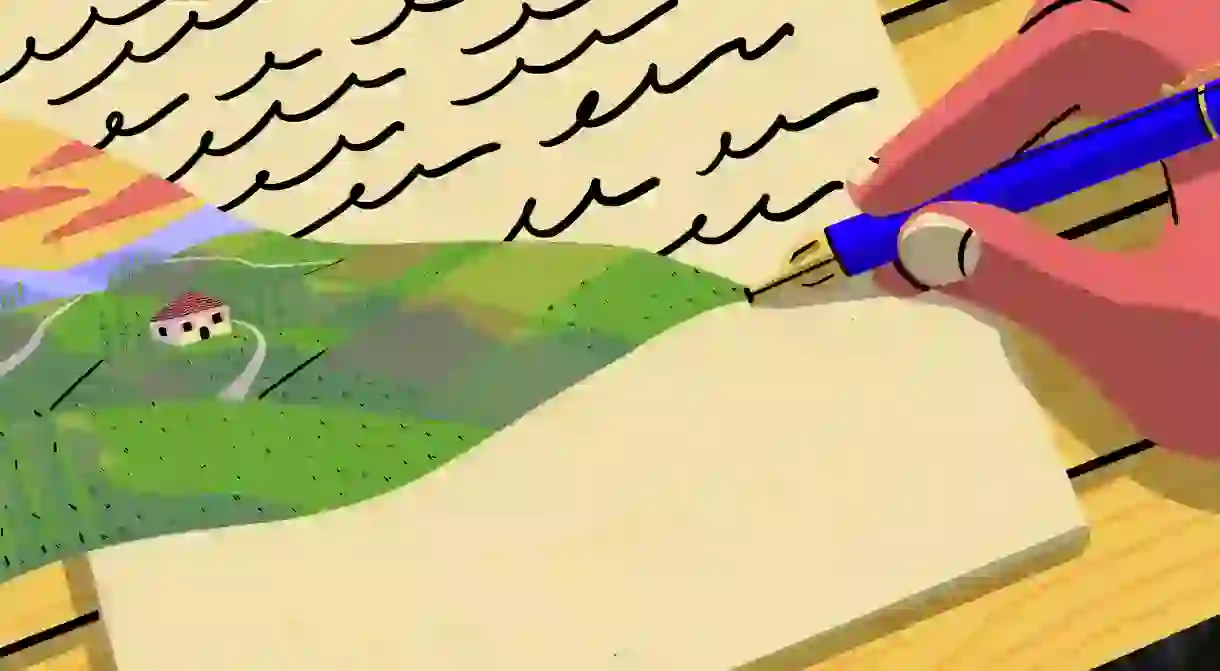Beautiful Italian Words Everyone Needs to Know

Italy is one of the most romantic countries on Earth, and its language is a big part of that. All of those elongated vowels, staccato constants and melodically rolled R’s make even the simplest of words sound so deliciously seductive. Pick up the lingo ahead of your next trip with our guide to some of the most beautiful Italian words to know.
Once you’ve learned the following words, put them to use on one of our incredible Italian adventures. You can eat your heart out in Sicily, cool off on the Amalfi Coast.
Sprezzatura
One of the most beautiful words in Italian is sprezzatura. More of a concept than a word, it was created in the 16th century by Baldassare Castiglione in his work The Book of the Courtier. It means a kind of effortless elegance. To be truly sprezzatura, you should make sure you never look like you are trying too hard.
Passeggiata
This word means ‘walk’ – but it is so much more than a late afternoon or an evening stroll. This walk is about seeing and being seen, and it happens in Italy’s biggest cities and smallest towns. There is often gelato involved.

Allora
Meaning ‘and’, ‘so’ or ‘thus’, this is the most versatile of filler words. Italians use a long, drawn out allora at the start of a sentence to buy themselves a little time when they don’t know what to say.
Crepuscolo
Meaning ‘twilight’. It makes the ideal Instagram hashtag to describe that perfect shot of the golden or blue hour.
Cucciolo
Baby animal, usually a puppy or kitten. The double ‘cc’ in Italian is pronounced like ‘ch’ in English, making this a wonderfully fun word to say. It is used as a term of endearment.
Mozzafiato
This means ‘breathtaking’. This literal word comes from mozzare, meaning to cut or chop off and fiato, meaning breath. It can be used when talking about a particularly beautiful work of art or a scenic view.
Magari
This means ‘maybe’. This word is used as an expression of hope like ‘I wish’ or ‘I hope so’.

Boh
This means ‘who knows’. Always said with a dramatic shrug of the shoulders and a furrowed brow.
Mamma mia
Yes, Italians really do use this declarative phrase in every-day conversation. It is used to express exasperation, fear, joy and excitement.
Impiraressa
This means ‘bead stringer’, used mainly in Venice to describe women who string tiny glass seed beads that are made on the island of Murano.
Salve
From the Latin to ‘be well’. Used primarily in Rome as a greeting, this word falls between the formal buongiorno/arrivederci and the informal ciao.
Torno subito
Meaning ‘be back soon’. You will likely see this scribbled on a sign in a shop window. It can involve a break of anything from five minutes to five days.
Furbo
This means ‘clever’. This is another example of a term that is more of a concept than an adjective, and is often used to describe a sly, crafty act like tax evasion or cutting in line.

Auguri
Meaning ‘best wishes’. This word is used to say (and sing) happy birthday, as well as saying Merry Christmas and Happy Easter.
Figurati
Meaning ‘imagine’. Imagine is the technical translation of this word, but you will hear it used as ‘my pleasure’, or ‘don’t worry about it’.
Daje
Meaning ‘come on!’ The Roman version of the Italian word dai is said in two drawn out syllables, almost always in a shout.
Did you know you can now travel with Culture Trip? Book now and join one of our premium small-group tours to discover the world like never before.
Discover our full collection of trips in Italy, or check out other itineraries in Portugal, Spain and Greece.













